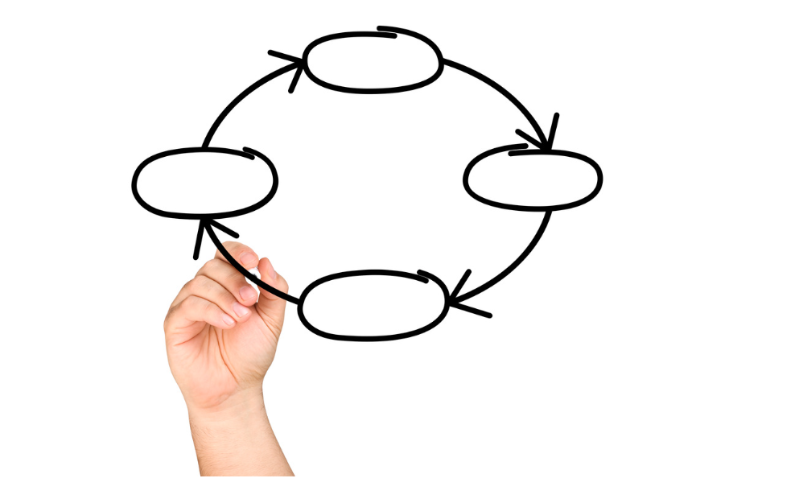- Time
- 09:30 - 11:30
Whats On
Online Workshop: Introduction to Systems Thinking and Causal Loop Diagrams
Register now for our online training: an introduction to systems thinking and causal loop diagrams (Session 1 - Wed 24th Jan / Session 2 - Fri 2nd Feb)
- Date(s)
- January 24, 2024 - February 2, 2024
- Location
- On-line workshop
- Price
- Free
Systems thinking recognises that non-communicable diseases (NCDs) are part of a complex system consisting of multidimensional factors including individuals, public and private sector, organisations, the environment and other structures that are constantly interacting and changing in response to each other and their context. Systems thinking and systems-based methods offer a range of tools for understanding system behaviour and identifying patterns, interdependencies, and unintended consequences from NCD policies and strategies and how they influence the quality of health systems, as well as the quality of life and well-being of individuals. Despite its benefits, systems thinking is not currently widely used in the WHO European Region. Hence, there is a need to build capacity and develop thorough understanding of how systems thinking theories and methods can be effectively integrated into both policy processes and practical applications for NCD prevention and healthy ageing across the life course.
This workshop has been developed by researchers from Queen’s University Belfast as a joint initiative between the SPACE project and the WHO Collaborating Centre for Research and Training on Complex Systems and Network Science for Non-communicable Disease Prevention and Control.
The workshop is designed for:
· PhD students
· Researchers
· Public Health Professionals
It will provide participants with:
1. Skills in systems-based methods, in particular developing causal loop diagrams
2. Knowledge in systems thinking and complexity science, and their application to NCD prevention and control
The workshop will be divided in two different sessions:
Session 1
What will we do?
· WHO opening remarks
· Introduction to the WHO Collaborating Centre for Research and Training on Complex Systems and the SPACE project
· Introduction to systems thinking
· Introduction to Causal Loop Diagrams (CLDs)
· Kumu tutorial (online tool for creating CLDs)
When
· Wednesday 24 January @ 9.30 to 11.30 UTC+0. / 10:30-12:30 CET
Where
· Online via Zoom
Session 2
What will we do?
· Definition of theme & reference mode
· Variable elicitation
· Structure elicitation
· Feedback loops identification
When
· Friday 2 February @ 9.30 to 11.30 UTC+0 / 10:30-12:30 CET.
Where
· Online via Zoom
You have the option to register to attend only Session 1 OR both Sessions 1 & 2. Please note: registration numbers for Session 2 will be limited to maximise interaction with participants.
Register for session 2 (to take part in Session 2 it is a pre-requisite that you attended Session 1)
Facilitators
Dr Leandro Garcia is Lecturer in Complexity Science in Public Health at the Centre for Public Health, where he works on the development and application of systems thinking and complex systems science methods to investigate and address public and planetary health challenges. He is also co-lead of the Centre for Public Health's Complexity, Public Health & Planetary Health Cluster; member of the WHO Collaborating Centre for Research and Training on Complex Systems and Network Science for Non-communicable Disease Prevention and Control; and member of the Systems Evaluation Network organizing committee.
Dr Ione Avila-Palencia is a Research Fellow at Queen’s University Belfast working in the SPACE project. She has a background in Environmental Sciences and Public Health. Her research is focused on health effects of urban design, transport and related exposures like air pollution and physical activity in cities. Ione is currently working on the co-creation of a causal loop diagram, the combination of complex systems approach with causal inference tools like DAGs, and the development of mediation analyses about urban environment factors and cognitive decline outcomes.
Professor Ruth Hunter is a Professor of Public Health and Planetary Health at the Centre for Public Health, Queen’s University Belfast and Director of the WHO Collaborating Centre for Research and Training on Complex Systems and Network Science for Non-communicable Disease Prevention and Control. She co-leads the Centre for Public Health's Complexity, Public Health & Planetary Health Cluster Ruth's work primarily involves investigating how to improve the urban environment for better population health, including evaluation of natural experiments such as large-scale urban regeneration programmes and the application of systems thinking and complexity science methods.
WHO Collaborating Centre for Research and Training on Complex Systems and Network Science for Non-communicable Disease Prevention and Control: Ruth Hunter is director of the WHO Collaborating Centre working primarily with the Regional Office for Europe NCD Office. A main purpose of the WHO CC is to build capacity in systems thinking and complex systems science methodology and application.
| Website | www.qub.ac.uk/sites/space |
